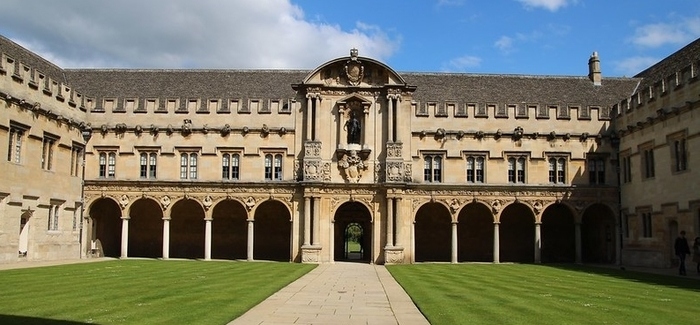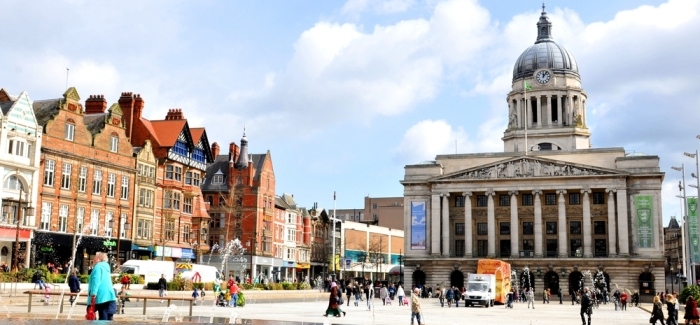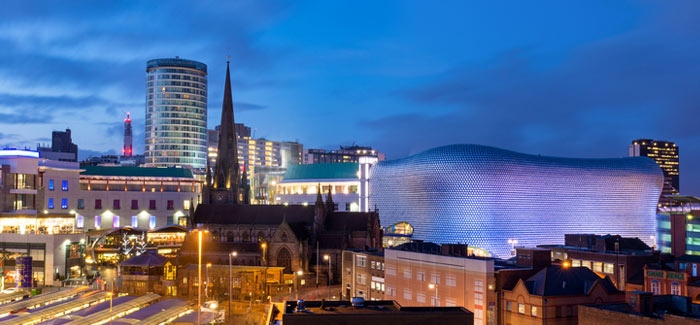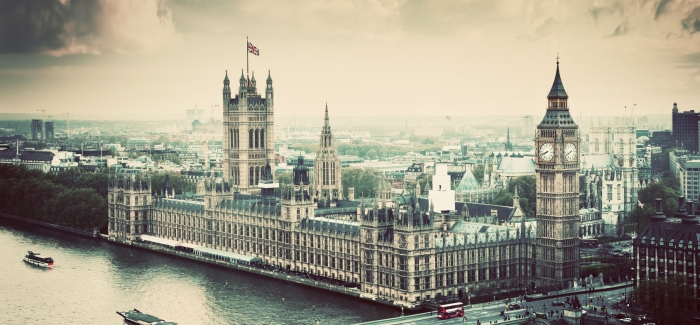Thinking of studying in the UK? Make sure you check out our top 10 things to do in the UK as an international student.
With a large selection of world-renowned universities, the UK is the world’s second most popular study destination (behind the US). While each UK university has its own lively student community, make sure your time studying in the UK is not spent entirely within the confines of your campus! To make sure you really get to experience UK culture, check out these 10 things to do…
 1. Visit London
1. Visit London
Nearest universities: University College London; Imperial College London; King's College London; London School of Economics; Queen Mary, University of London; SOAS; Royal Holloway University of London; Brunel University; Goldsmiths, University of London; City University London
Even if you’re not studying at a university in the UK capital, you should definitely visit London at least once during your time in the UK. And even if you are based here for a full three years or longer, you still won’t run out of new things to see and do.
In tourist mode? Head for the Houses of Parliament and Big Ben, the London Eye, Horse Guards Parade and Buckingham Palace. Keen to learn? Take your pick of the museums – starting with the British Museum, Natural History Museum and Science Museum.
In the mood for culture? Browse the Tate Modern, then stroll along the river to check out the British Film Institute and National Theatre. Once evening comes, you may head to the West End (‘theatreland’) to catch a show, or explore the city’s thousands of pubs, bars, restaurants, club and gig venues.
If you’re in London for longer, you’ll have time to get more of a feel for specific areas of the city, outside the very busy center. Camden, Notting Hill, Highbury, Brixton, Little Venice, Shoreditch… each area has its own distinctive character, as any true Londoner will tell you!
 2. Explore the British countryside
2. Explore the British countryside
Had your fill of the city? Why not venture out into the greenery of the British countryside? There are plenty of beautiful areas to explore, from lush valleys and rolling hills, to dramatic coastlines and dazzling lakes.
Areas particularly known for natural beauty include the Lake District and Peak District (in England), the Antrim Coast (in Northern Ireland), the Wye Valley (in Wales), the Scottish Highlands and the Hebrides (a group of islands off Scotland). But these are really just a few – there are many more!
Whichever part of the UK you’re studying in, there’s certain to be some beautiful nature within your reach. Get your walking boots on, pack a picnic and get out there. You may want to pack an umbrella too…
 3. Get to know the cities of Northern England
3. Get to know the cities of Northern England
Nearest universities: University of Manchester; University of Sheffield; University of Leeds; Newcastle University; University of Liverpool; Durham University; University of York
While the UK’s best known universities are in the southern ‘golden triangle’ formed by London, Oxford and Cambridge, the cities of Northern England are well worth checking out – both for their universities and as places to visit in their own right.
Following a series of large-scale regeneration projects, many cities in Northern England are in a process of transformation into major hubs for culture and research, with universities that attract thousands of applicants from all over the world every year.
One case in point is Liverpool, where disused shipping docks have been transformed into attractive centers for arts and leisure, while the Liverpool Science Park (established in 2003) is one of the UK’s fastest growing science hubs. (A trip to Liverpool will also be a must for any fans of The Beatles – you can take a tour of the bars and venues where the famous four began their rise to musical stardom, and buy all the Beatles merchandise you could possibly desire.)
Joining Liverpool among Northern England’s most popular cities are Manchester, Newcastle, Sheffield, Leeds, York, Durham – each with a university ranked within the world’s top 150, and each with their very own distinct history, culture and character.
 4. Go punting in Oxford and Cambridge
4. Go punting in Oxford and Cambridge
Nearest universities: University of Oxford, University of Cambridge
Back in the south of the UK, we return to Oxford and Cambridge, home to the two oldest and most famous universities in the UK. Both are highly historic and picturesque towns, so even if you’re not studying at an ‘Oxbridge’ college, you’ll probably want to make a visit.
If there’s a traditional Oxbridge activity, it’s undoubtedly punting. This refers to the use of ‘punts’ – a type of flat-bottomed boat, propelled by using a large pole to push against the bottom of the river (the Cherwell and Isis rivers in Oxford and the River Cam in Cambridge).
Plenty of punts are available for hire in both cities. Recommended punting accessories include a boater hat, Pimms and lemonade, and the most extravagantly pretentious book you can lay hands on (for purely ornamental purposes, of course).
 5. Soak in culture at the Edinburgh Fringe Festival
5. Soak in culture at the Edinburgh Fringe Festival
Nearest universities: University of Edinburgh; University of Glasgow; Herriot-Watt University
No matter where you happen to be studying, there are plenty of good reasons to spend some time north of the English border during your stay in the UK. Walk Edinburgh’s Royal Mile, take in the view from Arthur’s Seat, check out the beautiful architecture of the historic Edinburgh University, and explore the ‘haunted’ vaults that run underneath the city – and if it’s New Year’s Eve, get ready to join in the fun at the legendary Hogmanay party.
If you’re going to visit Edinburgh just once, try to plan your trip during August, when the city hosts an array of arts and cultural festivals known collectively as the Edinburgh Festival, attracting hundreds of thousands of visitors from around the world. The two oldest of these festivals are the Edinburgh International Festival and the Edinburgh Fringe Festival, which is the world’s largest arts festival.
Over the three weeks of the festival, the city’s streets and venues are filled with an incredible selection of theater, comedy, music and dance performances, creating a party atmosphere that makes a visit to the Fringe an essential part of any study abroad experience in the UK.
 6. Party at London’s Notting Hill Carnival
6. Party at London’s Notting Hill Carnival
Nearest universities: See point #1
Also in August (not bad timing for students, as this is during the summer vacation for UK universities), is London’s Notting Hill Carnival. This weekend event sees around one million people flock to the Notting Hill area of the capital, to take part in one of the world’s largest street parties.
A celebration of Caribbean culture, the Notting Hill Carnival certainly isn’t for the shy and retiring – hundreds of sparingly attired dancers and performers get their groove on to booming reggae, dub, hip hop, grime, dubstep and drum ‘n bass music, played through huge sound-systems.
For those willing to go with the flow, the energy and exuberance of the carnival make it a one-off experience that will open your eyes to yet another side of UK culture.
 7. Take on the 4 Peaks Challenge
7. Take on the 4 Peaks Challenge
Want to feel like you’ve really conquered the UK? How about signing up to the 4 Peaks Challenge? This means attempting to climb the highest mountains in each of the UK’s four states (England, Wales, Scotland and Northern Ireland) within 24 hours.
Admittedly, the UK’s mountains are all relatively small when viewed on an international scale. The highest is Scotland’s Ben Nevis, at 1,344m (4,408ft) above sea level. But tackling these peaks should nonetheless give you a sense of achievement – and if you’re lucky you should get some great views too.
Of course you don’t have to do the 24-hour version; why not set yourself the challenge of visiting all four peaks within a year? That way you can also spend some time exploring the surrounding areas.
 8. Go to Glastonbury – or one of the UK’s many other music festivals
8. Go to Glastonbury – or one of the UK’s many other music festivals
Glastonbury Festival has come a long way since organizer Michael Evis first booked a few blues bands to play on his farm to 1,500 people in the summer of 1970. Nowadays Glastonbury is the largest outdoor music festival in the world, with around 175,000 people joining in annually, and tickets typically selling out almost as soon as they’re released.
If you don’t manage to get a ticket, or would prefer a more intimate festival experience, there are numerous other UK music festivals to choose from. In fact for its size, the UK has more music festivals than any other nation. And for many young Brits, the festival experience (including the almost inevitable rain and mud) is a keenly anticipated annual tradition.
Other relatively large festivals include the Reading and Leeds Festivals, V Festival, T in the Park and Latitude – but there are literally hundreds more, of all sizes and covering all genres of music, from classical through to heavy metal.
 9. Visit some of the smaller UK islands
9. Visit some of the smaller UK islands
The UK is typically represented as being on two islands – the main, larger island which contains England, Scotland and Wales, and the smaller island which Northern Ireland shares with the Republic of Ireland. However, there are lots of smaller islands around the UK, which are well worth a visit, especially if you enjoy exploring more peaceful and rural locations.
Among the most popular islands to visit are the Channel Islands, located in the Channel between the UK and France. The largest of these are Jersey and Guernsey. The Isle of Man, located in the Irish Sea roughly in between all four UK states, is also popular, and there are also many beautiful islands to visit off the coast of Scotland. These include Skye, Orkney, Rum, Eigg, and the Hebrides and Shetland groups.
Some of these islands (such as Man, Jersey and Guernsey) are self-governing, and some are very remote – particularly those off the north coast of Scotland. Visiting is a chance to see yet another aspect of UK life, and if you choose, to get that feeling of having been on a real adventure.
 10. Go to a sports event
10. Go to a sports event
Finally a list of the top 10 things to do in the UK would not be complete without mentioning sports, a major part of life for many UK residents. Football (soccer) is probably the UK’s largest sporting obsession, with some of the most popular teams including Manchester United, Arsenal, Chelsea, Liverpool FC and Tottenham Hotspur. In Scotland the two most successful are Glasgow-based rivals Rangers and Celtic, while the top Welsh team is Swansea City.
Other popular sports in the UK include rugby (similar to American football), tennis (the crowning event of the year is of course the annual Wimbledon Championships) and cricket. But of course many other sports are popular, from amateur up to international level.
Even if you don’t make it to a big stadium event, at least check out your local teams, or get involved with university sports teams – either by playing or supporting.
Ticked off all these 10 things to do in the UK? Next up:
- Eat some traditional fish & chips served wrapped in newspaper
- Go surfing in Cornwall (then try a real Cornish pasty)
- Visit the Giant’s Causeway in Northern Ireland
- Follow the Robin Hood trail in Nottinghamshire
- Go in search of the Romans at Hadrian’s Wall
Find out more about studying abroad in the UK >
 UK’s top universities by region
UK’s top universities by region
1) East Midlands: University of Nottingham; University of Leicester; Loughborough University
2) East of England: University of Cambridge; University of Essex; University of East Anglia
3) Greater London: University College London; Imperial College London; King's College London; London School of Economics; Queen Mary, University of London; SOAS; Royal Holloway University of London; Brunel University; Goldsmiths, University of London; City University London
4) North East England: University of Durham; Newcastle University
5) North West England: University of Manchester; University of Liverpool; Lancaster University
6) South East England: University of Oxford; University of Southampton; University of Sussex; University of Reading; University of Surrey; The Open University; University of Kent
7) South West England: University of Bristol; University of Bath; University of Exeter
8) West Midlands: University of Warwick; University of Birmingham;Aston University
9) Yorkshire and Humber: University of York; University of Sheffield; University of Leeds; University of Bradford; University of Hull
A) Scotland: University of Edinburgh; University of Glagow; University of St Andrews; University of Aberdeen; University of Dundee; University of Strathclyde; Herriot-Watt University
B) Wales: Cardiff University; Swansea University; Aberystwyth University; Bangor University
C) Northern Ireland: Queen's University of Belfast













